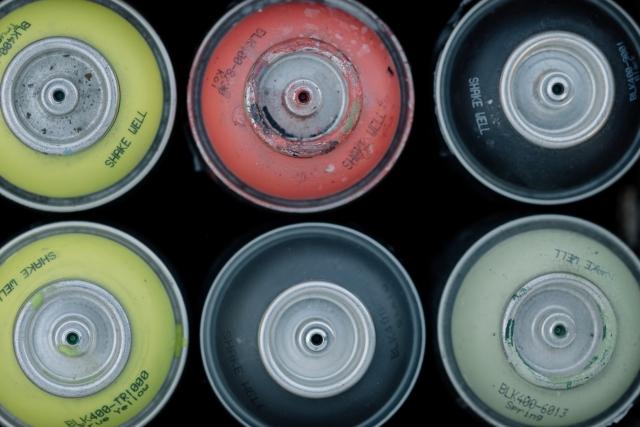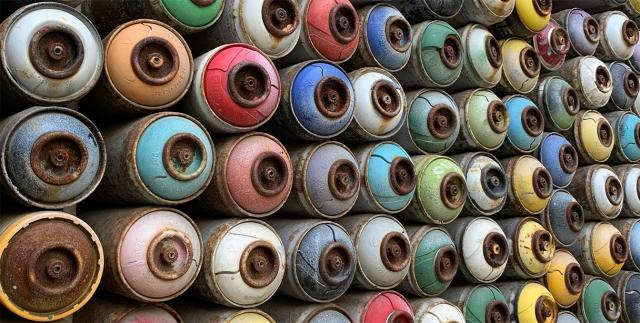Four States to Adopt Aerosol-Universal Waste Rule by End of 2021
The U.S. Environmental Protection Agency (EPA) finalized “Increasing Recycling: Adding Aerosol Cans to the Universal Waste Regulations” on Nov. 15, 2019, and published them in the Federal Register on Dec. 9, 2019. These regulations allow for the management of hazardous aerosol can wastes under the universal waste portion of the federal Resource Conservation and Recovery Act (RCRA) hazardous waste rules (40 CFR 273).
The Aerosols as Universal Waste Rule became effective on Feb. 7, 2020, in non-authorized states and must be adopted in authorized states.
As more states adopt the rule, Clean Earth is tracking the status to show when and where the rule is effective, as well as the interim steps such as draft regulations and public comment periods. Mississippi, Oregon, Vermont and Washington, D.C. plan to adopt the rule by the end of 2021.
State updates from the past month include:
Rule already in effect
- Minnesota: The rule is currently being drafted and will be added to the previously proposed rulemaking: Land-Related Housekeeping Amendments. The proposed rule is to be published in March 2022, along with the public hearings, comment periods and meetings notices.
Similar rule already in effect
- Colorado: The rule is in the post public comment period. Colorado already has a similar law and is determining if changes are required. Written comments were due November 3, 2021, with the earliest possible publication date being December 30, 2021.
- Utah: Currently in the post public comment period and will closely mirror the Federal since Utah already has a similar law. December 10, 2021, is the anticipated date that the rule will be published.
Anticipated rulemaking by December 2021
- Mississippi: Regulations are written and notices are being worked on, with the proposed rule to be published late 2021. Public hearings, comment periods and meeting notices will also take place in late 2021 with the final rule going into effect in 2022.
- Oregon: The rule is currently under legislative review. Committee meetings were held November 17-18, 2021, and the rule is to go into effect January 1, 2022, if the Board approves in November.
- Vermont: The rule is currently under legislative review and is to go into effect late 2021.
- Washington, D.C.: The proposed rule is to be published late 2021/early 2022. Public hearings, comment periods and meeting notices will take place late 2021/early 2022 as well, with comments being accepted for 30 days following publication. The final rule is to go into effect late 2021/early 2022.
Anticipated rulemaking after December 2021
- Maryland: The rule is being discussed internally. The public comment period is intended to take place in the second half of 2021.
- Missouri: Currently drafting the rule and will be published late 2021/early 2022. Public hearings, comment periods and meeting notices will also be held during that time.
- Montana: The rule is in the informal public comment period and intend to be adopted by reference. The formal public comment period will take place in the first half of 2022.
- Texas: Intended publication date of the rule is January 28, 2022, and will go into effect February 3, 2022.
- Wyoming: The proposed rules are in the post public comment period and are anticipated to go into effect early February 2022.
The materials contained in aerosols can pose a potential environmental hazard if disposed of alongside regular municipal trash. When disposing aerosols, they must be handled responsibly in compliance with state and federal law in a way that reduces their potential environmental impact.
Clean Earth has extensive technical capabilities to handle the processing of many types of consumer commodities. We have a custom-built, cutting-edge aerosol recycling plant capable of recycling over 7 million cans per year.
Learn more about our unique ability to process and fully recycle aerosol waste products.

The information, content and materials provided in this Four States to Adopt Aerosol-Universal Waste Rule by End of 2021 and in related materials (“Content”) does not, and is not intended to, constitute legal advice, nor is it prepared by lawyer or law firm or as the product of any attorney-client relationship. Content is provided "as is;" no representations are made that the content is error-free. Content is available for general informational purposes only and may not constitute the most current legal or other information. Recipients of the Content assume all responsibility and risk arising from its use and reliance upon the Contact and should contact an attorney to obtain advice before acting or refraining to act on the Content. All liability with respect to actions taken or not taken based on the Contents is hereby expressly disclaimed.


